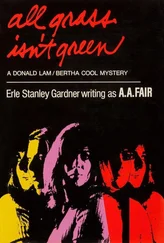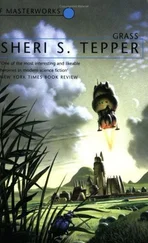“Now,” he asserted, “the KDF ruins must be designated a historic site!” And he went on to bicker in schoolboy fashion with his adversary David, whom I had long taken for his invention. They argued about the prospects of achieving a Volk community that would be not only nationalist but also socialist. Konny quoted Gregor Strasser, but also Robert Ley, whose ideas received from him a grade of “excellent.” He spoke of a “sound Volk body,” whereupon David warned him against “socialist-style pseudo-egalitarianism” and called Ley an “alcohol-sodden blowhard.”
I skimmed through this chitchat, finding it only mildly amusing, and realized that the more my son raved about Strength through Joy as a brilliant project and model for the future, and praised the Workers' and Peasants' State s efforts to bring a similar socialist vacation paradise to fruition, notwithstanding all the shortages and shortcomings, the more embarrassingly I could hear his grandmother speaking through him. I no sooner entered Konny s chat room than my ear was filled with the irrepressible jabber of the has-beens.
Mother had provoked me and others in much the same way long ago. During the period before I went to the West, I would hear her holding forth at our kitchen table in her role as Stalin's last faithful follower: “And let me tell you, comrades, you know how our Walter Ulbricht started out small as a carpenter's apprentice? Well, I started in a carpentry apprenticeship, too, and always smelled of bone glue…”
Later, after the First Secretary was forced to vacate the premises, she apparently experienced difficulties. Not because I had fled the Republic, but rather because she belittled Ulbrichts successor as a “puny roofer” and suspected revisionists under every rock. When she was summoned before the Party collective, she is said to have cited Wilhelm Gustloff as a victim of Zionism, describing him as “the tragically murdered son of our beautiful city of Schwerin.”
Nonetheless, Mother managed to hang on to her position. She was both loved and feared. The recipient of several awards for “activism,” she continued to fulfill quotas successfully, and up to the end remained the leader of her carpenters' brigade at the People's Own Furniture Combine on Güstrower Strasse. She also increased the number of women apprenticing as carpenters to over twenty percent.
When the Workers' and Peasants' State was gone and the Berlin Handover Trust opened a branch in Schwerin, responsible for the city and surrounding countryside, Mother is supposed to have had her ringers in the pie, assisting with the winding down and privatizing of the People s Own Cable Works, the PlastExtrusion Machine Works, and other large manufacturing plants such as the Klement Gottwald Works, which made marine hardware, and even her own old Furniture Combine. It is safe to assume that she did not come away empty-handed from the general grabfest that took place in the East, for once the new currency arrived, Mother was not completely dependent on her pension. And when she gave my son the computer, with all the costly peripherals, the purchase did not leave her destitute. I attribute her generosity — toward me she was always fairly stingy — to an event that didn't make waves in the West German press but had a decisive influence on Konny.
But before I get around to describing the survivors' reunion, I have to bring up an embarrassing incident that a certain someone would like to talk me out of, he having formed a far too immaculate picture of his Tulla. On 30 January 1990, when that damned date seemed to have been withdrawn from circulation, because everywhere people were dancing to the tune of “Our Single German Fatherland,” and all the Ossies were panting for the D-mark, Mother undertook her own kind of action.
On the southern bank of Lake Schwerin, a three-story mouse-gray youth hostel was quietly crumbling away. It had been built in the fifties and named for Kurt Bürger, an early Stalinist who had arrived from Moscow at war's end as a certified antifascist and had earned his spurs in Mecklenburg by taking a tough stance. Behind the Kurt Bürger Youth Hostel, Mother placed a bouquet of long-stemmed roses at approximately the spot overlooking the lake where the granite boulder honoring the martyr was supposed to have stood. She did this in the dark, at exactly 10:18 p.m. She later described her nocturnal act to her friend Jenny and me, giving the precise time. She was all alone, and with her flashlight had searched for the place behind the youth hostel, which was closed for the winter. For a long time she was uncertain, but then, with the sky overcast and a cold rain falling, she decided that she had found it. “But I didn't bring them flowers for Gustloff. He was just one Nazi of many that got shot down. No, it was for the ship and all them little children that died that night in the ice-cold sea. I put down that bunch of white roses at ten-eighteen on the dot. And I cried for them, forty-five years after it happened…”
Five years later, Mother was no longer alone. Herr Schön and the management of the Baltic seaside resort of Damp, along with the gentlemen from the Rescue by Sea organization, issued the invitation. Ten years earlier a reunion of survivors had taken place at the same location. In those days the Wall and the barbed wire were still in place, and no one had been allowed to come from the East German state. But this time people came who for years had not dared to mention the sinking of the ship, for political reasons. Thus it was not surprising that the guests from the new German states were greeted with particular warmth; among the survivors, there were to be no invidious distinctions made between Ossies and Wessies.
In the resorts ballroom a banner hung over the stage, proclaiming in lettering that varied in size from line to line, MEMORIAL SERVICE FOR THE 5OTH ANNIVERSARY OF THE SINKING OF THE “WILHELM GUSTLOFF,” DAMP ON THE BALTIC, 28–30 JANUARY 1995. No one mentioned publicly that this date happened to coincide with the takeover in '33 and the birthday of the man whom David Frankfurter had shot in order to give a sign to the Jewish people. But in smaller circles, during coffee breaks or between sessions, it was alluded to parenthetically, in an undertone.
Mother had forced me to come. She hit me over the head with an irrefutable argument: “Seeing as how it's your fiftieth, too…” She had invited our son Konrad, and when Gabi raised no objections, she carried him off in triumph. She drove up in her sand-colored Trabant, quite a sight in Damp among the gleaming Mercedes and Opels. She had ignored the request I voiced earlier that she be satisfied with me and spare Konny this wallowing in the past. As a father and in other respects, too, I simply didn't count; on this assessment of me, my mother and my ex, who otherwise had little to say to each other, agreed: to Mother, I was “a wet noodle,” and Gabi never missed a chance to tell me what a failure I was.
Thus it was not surprising that the two and a half days in Damp proved quite awkward for me. I stood around at a loss, smoking like a chimney. As a reporter, of course, I could have put together a feature article on the event, or at least a news brief. Probably the organization's directors expected something of the sort from me, because Mother introduced me at first as “a reporter from them Springer papers.” I didn't correct her, but the only sentence I got down on paper was, “The weather is the way it is.” In whose voice could I have written a report? That of a “child of the Gustloff”? Or that of an objective professional?
Mother had an answer for everything. Since she recognized several other survivors among the crowd and was spontaneously approached by former crew members from the torpedo boat Löwe, she seized every opportunity to introduce me, if not as a Springer reporter, then as “the little boy who was born smack in the middle of the disaster.” And she had to add that the thirtieth would provide an occasion to celebrate my fiftieth birthday, even though the schedule called for an hour of silent remembrance on this day.
Читать дальше











